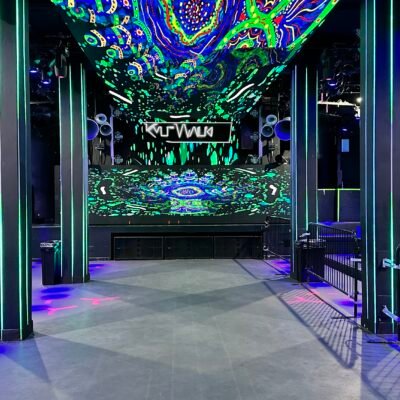The tiny homes popular in 2025 trend shows no signs of slowing down. Across the country more Americans are choosing to downsize their living spaces and embrace the simplicity flexibility and savings that tiny homes offer.
In this article we will explore why tiny homes are still popular in 2025 what drives people to this lifestyle and how the tiny home movement is shaping the future of housing.
What Are Tiny Homes?

Tiny homes are small living spaces usually between 100 and 400 square feet. They come in many forms:
- Tiny houses on wheels
- Backyard tiny homes or accessory dwelling units (ADUs)
- Tiny cottages and cabins
Despite their size these homes are cleverly designed to maximize every inch offering everything you need to live comfortably.
Why Tiny Homes Are Still Popular in 2025
Several reasons explain why tiny homes remain a strong choice for many Americans.
1. Rising Housing Costs

In 2025 housing prices and rent have continued to climb in many parts of the country. Tiny homes offer an affordable solution allowing people to own a home without taking on massive debt.
Many can build or buy a tiny home for a fraction of the cost of a traditional house. Some tiny homes cost under $100000 while the average price of a full-size home has skyrocketed well above $400000 in many areas.
2. Desire for Simplicity
The minimalist lifestyle is more attractive than ever. Many people are tired of the clutter stress and constant maintenance that comes with larger homes. Tiny homes encourage simpler living with fewer possessions and more focus on experiences rather than things.
3. Environmental Benefits
Tiny homes use fewer resources during construction and consume less energy. Their small size often means lower electricity water and heating costs. Some even use solar panels composting toilets and rainwater collection making them ideal for eco-conscious living.
4. Flexibility and Freedom
Tiny homes offer a level of flexibility that traditional houses cannot. Tiny homes on wheels allow owners to travel and live in different locations while still having all the comforts of home. Stationary tiny homes can be placed on private land or within tiny home communities that are popping up around the country.
5. Customization
Homebuyers in 2025 want homes that reflect their personal style. Tiny homes can be highly customized with unique layouts creative storage solutions and personalized design touches that make them feel truly like home.
Who Is Choosing Tiny Homes?
The tiny homes popular in 2025 movement includes a diverse group of people:
- Young Professionals: Seeking affordable starter homes without long-term debt.
- Retirees: Downsizing for simplicity and lower living costs.
- Remote Workers: Wanting flexible living spaces while working from anywhere.
- Eco-Warriors: Choosing homes that align with their values of sustainability.
- Adventure Lovers: Embracing mobile lifestyles with tiny homes on wheels.
Tiny homes are no longer a niche market. They are a mainstream option for many different lifestyles and life stages.
How Tiny Homes Are Changing the Housing Market
Tiny homes are influencing the housing market in big ways:
- Tiny Home Communities: Entire neighborhoods of tiny homes are being built offering shared amenities like gardens fitness centers and community spaces.
- Legal Changes: More cities and towns are adjusting zoning laws to allow tiny homes and ADUs creating more housing opportunities.
- Financial Options: Banks and lenders are offering better financing choices for tiny homes recognizing their growing popularity.
Builders and real estate developers are paying attention to the demand for smaller affordable and sustainable living spaces.
Challenges of Tiny Home Living
While tiny homes are appealing they do come with some challenges:
- Zoning Laws: Some cities still restrict where tiny homes can be placed.
- Space Limitations: Living small requires strong organization skills and adaptability.
- Financing Issues: Not all banks offer traditional mortgages for tiny homes.
- Resale Value: Selling a tiny home can be more difficult than selling a traditional house depending on location.
However for many the benefits far outweigh the downsides and creative solutions are helping tiny homeowners navigate these challenges.
Tiny Homes and the Future
Experts believe tiny homes will remain popular beyond 2025. Key trends shaping the future of tiny living include:
- Smart Technology: Many tiny homes are equipped with smart thermostats security systems and energy-efficient appliances.
- Green Building: Sustainable materials and energy-saving designs are becoming standard in tiny home construction.
- Multi-Use Tiny Homes: Some people are using tiny homes as guest houses rental properties home offices or art studios.
- Affordable Housing Solutions: Governments and nonprofits are exploring tiny homes as a way to address homelessness and housing shortages.
Tiny homes are proving that bigger is not always better and that thoughtful design and smart living can offer a rich fulfilling life.
Tips for Those Considering a Tiny Home
If you are thinking about joining the tiny homes popular in 2025 movement here are a few tips:
- Research local zoning laws and building codes.
- Start decluttering early and think about what you truly need.
- Visit tiny home models or stay in one temporarily to test the lifestyle.
- Choose a layout that fits your needs whether you want a loft a downstairs bedroom or extra outdoor space.
- Work with reputable builders and check for quality construction.
Tiny living can be a rewarding and freeing experience when approached thoughtfully.
Final Thoughts on Why Tiny Homes Are Still Popular in 2025
The tiny homes popular in 2025 trend is about more than just living in a small space. It’s about choosing a life of simplicity freedom affordability and sustainability.
As more Americans rethink what home really means tiny homes are standing tall as a smart stylish and satisfying choice. Whether on wheels in a backyard or nestled in a tiny home community these small homes are making a big impact on the future of living in America.
Also read – The Rise of Digital Nomads: Work Remotely & Live Abroad






